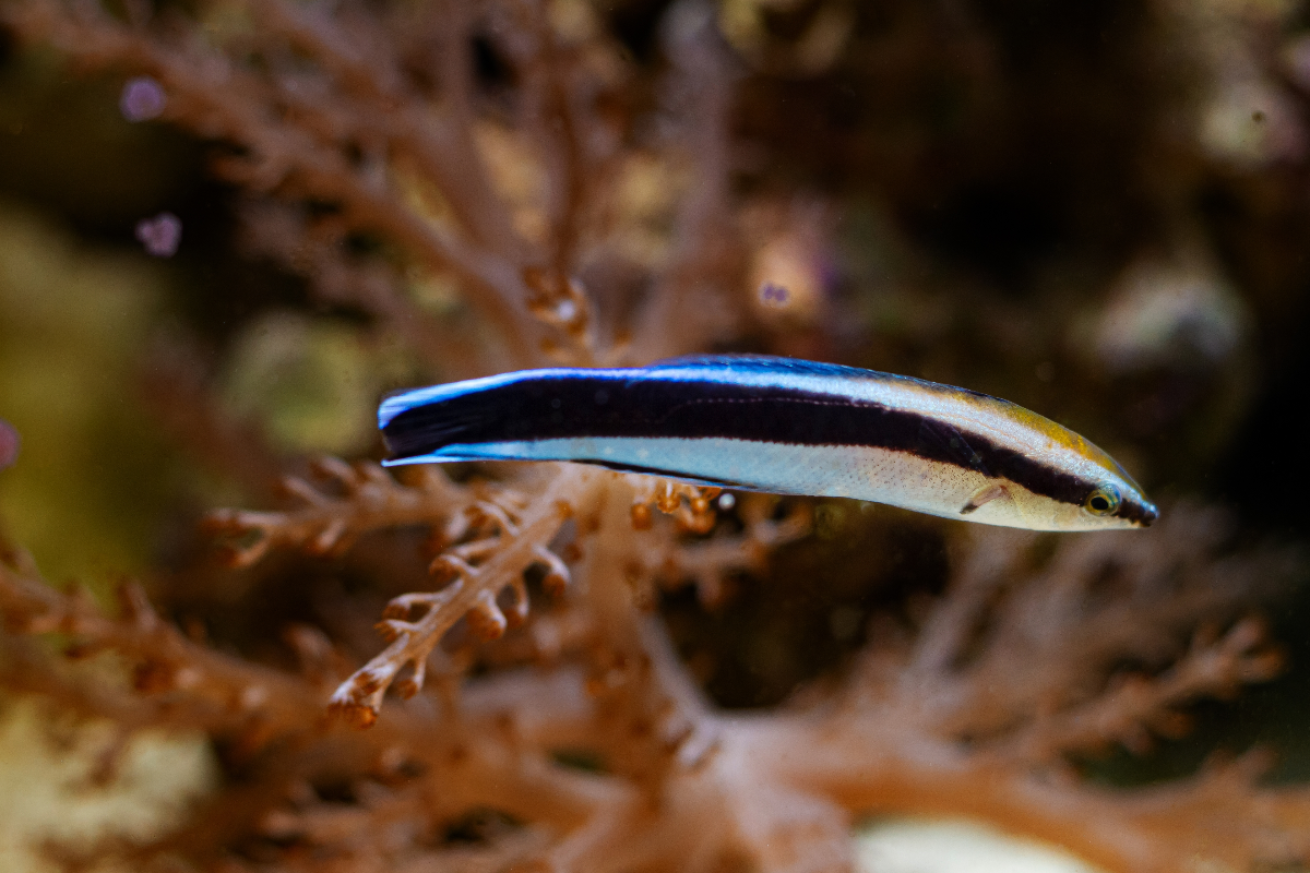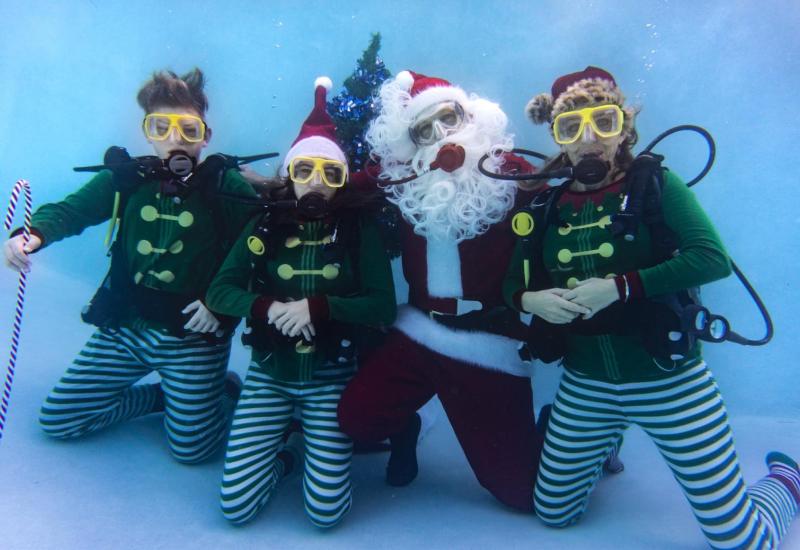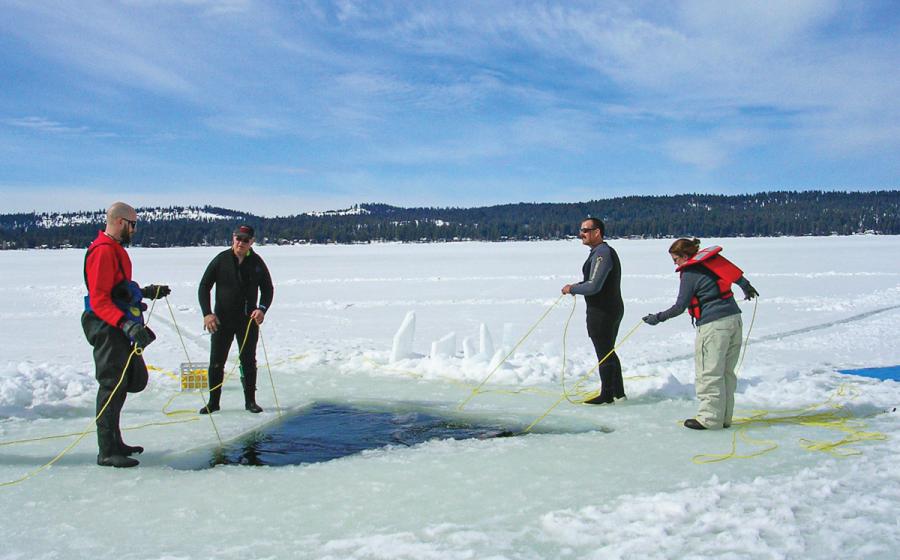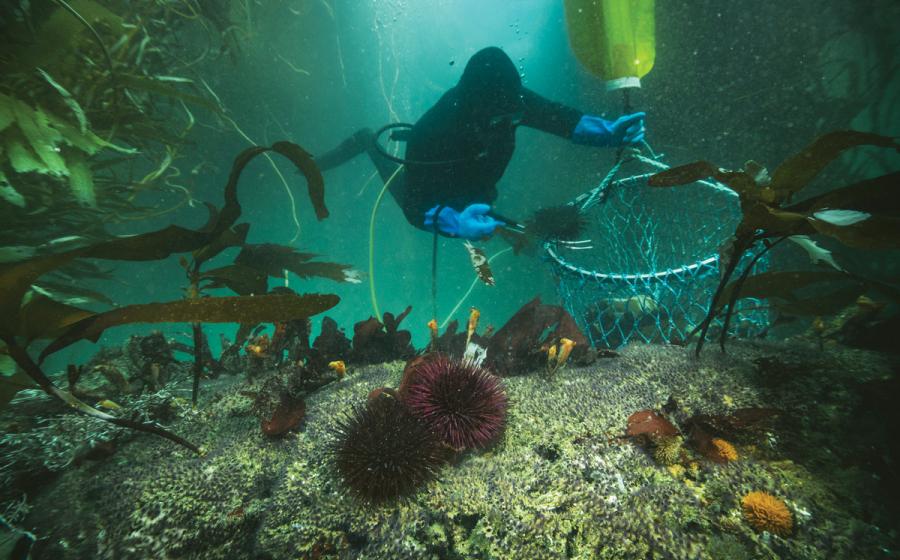There’s New Evidence That Fish Are Self-Aware

Shutterstock.com/Aleron ValA Cleaner wrasse can pass the mirror test, exhibiting self-awareness as in humans.
A new study has found that some fish can recognize their own faces in photos and mirrors—a sign of self-awareness. The finding suggests self-awareness may be more widespread among animals than previously thought.
Other studies have highlighted complex behaviors in fish including tool use, planning, collaboration and even play. Animal behaviorist Jonathan Balcombe says, “It’s time we stopped thinking of fishes as somehow lesser members of the vertebrate pantheon.” He wasn’t involved with the study.
See also: Do Fish Play? Evidence Says, Maybe
Study author and animal sociologist Masanori Kohda of Osaka Metropolitan University focuses on bluestreak cleaner wrasses (Labroides dimidiatus). Her previous research shows these tiny fish can pass the mirror test – a controversial cognitive assessment meant to reveal the ability to to be the object of one’s own thoughts. Animals exposed to a mirror are subsequently marked on their face or body. If they notice the mark in their reflection and try to touch it on their body, they pass the test. This is otherwise called “self-awareness.”
In 2018, Kohda’s team exposed wild-caught cleaner wrasses in separate tanks to mirrors for a week. Then, the researchers injected brown dye beneath the scales on the fish’s throats – a marking resembling parasites these wrasses eat off of larger fish in the wild. When marked fish saw themselves in the mirror again, they struck their throats on rocks or sand at the bottom of the tank – an apparent attempt to scrape off the mark.
In Kohda’s latest study, published in Proceedings of the National Academy of Sciences, cleaner wrasses that passed the mirror test could also distinguish their own faces in still photos from those of other cleaner fish. These fish were shown images of their own faces as well as photos of unfamiliar cleaner fish. All 10 acted “aggressively” toward the unfamiliar photo but not toward the one of their own face. These findings suggest that fish form a “mental image” of their own faces to identify themselves, just like humans are believed to.
See also: Manta Rays Are Smarter Than You Think
Self-recognition in one’s own reflection usually happens when animals match up the movements of the mirrored image with their own, researchers think. Because the cleaner wrasses were also able to recognize their own faces in still images, suggesting that they – and other animals that pass the mirror test – scientists concluded that they, and other animals that pass the mirror test, might be able to identify themselves from a mental image of their own face and compare it to what they see in the mirror or photos, the latest study shows.
“I think it’s truly remarkable that they can do this,” says primatologist Frans de Waal of Emory University, who was not involved in the research. “I think it’s an incredible study.”
Additionally, another eight wrasses in the study spent a week with a mirror but weren’t marked. When shown a photo of their own faces with a brown throat mark, six began scraping their throats on their environment just like the fish that passed the mirror test. Notably, the second cohort didn’t scrape when shown a photo of a different fish with a mark.
Before the wrasses, only “large-brained” species like chimpanzees, other great apes, elephants, dolphins and magpies passed the mirror test. Indeed, there was an assumed correlation between brain size and the ability to be self-aware.
See also: How Intelligent Are Octopuses? Your Octopus Questions Answered
“It is believed widely that the animals that have larger brains will be more intelligent than animals of the small brain,” such as fish, explains Kohda. Her research is pushing us to rethink that assumption.
Nevertheless, failing the mirror test is not evidence of a lack of self-awareness, adds de Waal. In fact, scientists are perplexed at why cognitively-complex species like monkeys and ravens don’t pass the mirror test. Others question if the test is appropriate across species because some, like dogs, rely on scent over sight for identification while others, like pigs, may not care enough about a mark enough to try to touch it.
Kohda’s lab will keep probing what’s going on in the brain of the cleaner fish as they try their new photo-recognition methodology on another popular research fish – the three-spined stickleback (Gasterosteus aculeatus).



.png?itok=wW_XQefZ)






